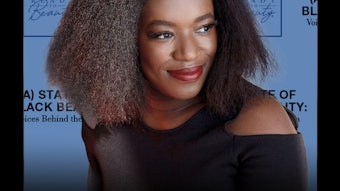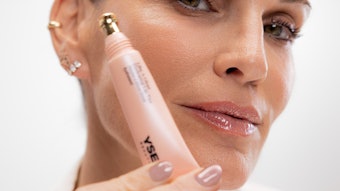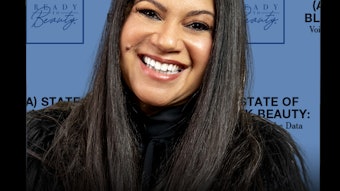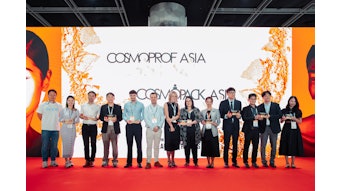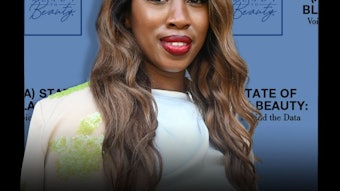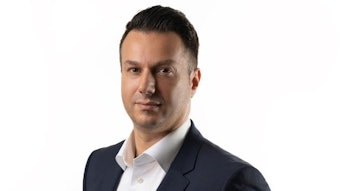
Digitally native consumers are shopping in non-traditional ways and have access to more sharing and discovery. Instagram and Facebook make authentic before-and-after photos and try-ons easy, and unboxing videos allow ankle biter brands—small, feisty companies—to reach millions of consumers. This sharing culture has helped boost brands like Glossier, which recently received $52 million in series C funding. Here, we present two views about what’s really going on.
1. The Strategist’s View
“Every purchase comes down to consumer insight and her needs and wants—the most pivotal piece of the ankle-biter or big company,” says Lisa Kent, founder and president of The Luminations Group, LLC, a well-known global innovation and strategy firm. “No matter how wonderful a big company’s products are, [in order to get] the consumer to sense that magic or discovery they have to work harder.”
Kent adds, “What is missing [from large brands] is not the breakthrough technology, functionality or claims, but the mystique or cache of discovery. Today the excitement and ‘juice of discovery’ is harder for larger companies—and they must work diligently for this special sauce. Before, it was about being established, stable and trusted, but now the consumer is more willing to take chances and try something based on [social media] likes and shares.”
But Kent cautions: “I have a lot of passion for big brands in that they bring a lot to the table in the way of safety testing, formulating, production and better environmental [credentials]. Without those big companies and big brands, it would be harder for the little brands to do what they do. Smaller brands bring excitement and freshness, [while] known companies bring trust and experience; we need both.”
2. The Advisor’s View
Richard Kestenbaum, partner at Triangle Capital LLC, represents sellers in the $15-200 million range. He sheds some light on finding the right buyer with the right principles for the transaction.
“Many owners decide to sell not because they’re doing badly but because they’re doing well,” he explains. “Not only because that’s a time to maximize their value, but also because they see lots of opportunity but don’t want to make the investment personally that the business needs for growth. Sometimes they want to diversify their risk by taking chips off the table and getting someone else to put the capital in for expansion. We see that situation all the time.”
3. The Beauty Veteran’s View
With the recent flurry of beauty unicorns running around, we can’t forget about past pioneers. In 2010, philosophy was purchased by Coty. At the time, David Booth served as philosophy’s vice president of marketing and was therefore on board during the transition.
According to Booth, “It was an interesting time on both sides. When Coty came in they assumed they were buying R&D and innovation and not a ‘me too’ brand. Under [founder] Cristina [Carlino], philosophy was a true innovator.”
In many similar situations a legacy brand will “acquire” both a brand and its management, as Coty did with Booth. Coty did not have much history with skin care at the time, nor did it have experience within the QVC business model. This was another innovative tool that could be added to Coty’s portfolio that would broaden its capabilities, make it more relevant as a full-service beauty organization and allow it to gain market share.
“Coty was able to learn a lot about skin care from philosophy,” says Booth. “They respected us and didn’t try to change things right away. They appreciated the entrepreneurial environment. It was scrappy and required a new mentality for Coty. Although in some instances it was positive, in other areas philosophy was faced with some serious challenges that Coty might not have anticipated. Many aspects of the brand needed to be reinvented, made more relevant to today. This is where Coty helped a lot.”
Up Next: Inside 2 Acquisitions
In the next article in this series, I will look at two brands and how each integrated their new partners in a very different way.
_______________________________________
Roxann Paulson, founder of Roxann Paulson Marketing LLC, has worked with clients such as Kline & Company, Concept Labs, Space NK, Blow Pro, St.Tropez, Real Techniques, Paris Presents and Aveda Concept Salon, etc. She previously served as CEO/GM Philips Crystalize, based in Amsterdam, Netherlands, and distributed in United States via Duane Reade, Fred Segal, and Beauty Collection. She has also held the roles of vice president/brand manager with Estée Lauder Companies, Inc., corporate manager retail marketing for Walgreens, vice president/executive creative director at Dr. Brandt Skincare.

